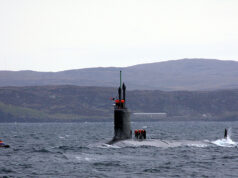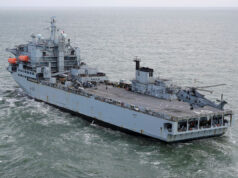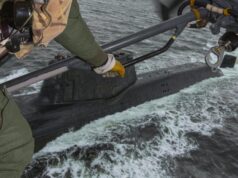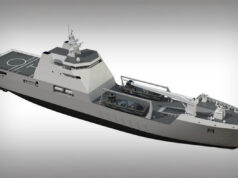NATO has successfully conducted an activation exercise for Operation Sea Guardian (OSG) in the Eastern Mediterranean, showcasing the alliance’s operational readiness and coordination.
The exercise involved the deployment of a maritime Special Operations Forces (SOF) element, managed by the Special Operations Command and Control Element (SOCCE) in Greece.
This live exercise rigorously tested NATO’s existing plans and procedures, highlighting the importance of an effective command and control structure across strategic, operational, and tactical levels. The planning phase incorporated essential elements, such as legal frameworks, rules of engagement, medical support, and communications, ensuring all aspects of the operation were thoroughly evaluated.
During the exercise, a highly skilled team from the Hellenic Armed Forces SOF, operating under SOCCE’s direction, embarked on the Fast Guided Missile Patrol Boat HS DANIOLOS and boarded the Hellenic Navy support ship HS Atlas I.
In a simulated scenario, HS Atlas I acted as a suspect merchant vessel involved in illegal activities, including terrorism. The SOF team conducted a detailed inspection of the ship’s documentation and cargo, ultimately clearing the vessel after completing the search.
“This exercise demonstrated the precision and readiness of all participating forces in addressing maritime threats in the Mediterranean,” said Captain Thaddeus Bruijn (NLD N) of Allied Maritime Command. The exercise also highlighted the operational effectiveness of SOCCE in Greece, successfully commanding and controlling the assigned SOF elements.
NATO’s Operation Sea Guardian is an ongoing maritime security initiative focused on maintaining Maritime Situational Awareness (MSA), countering terrorism, and enhancing interoperability among NATO Allies and partners. The operation includes regular patrols and targeted actions in areas of strategic importance within the Mediterranean Sea.













